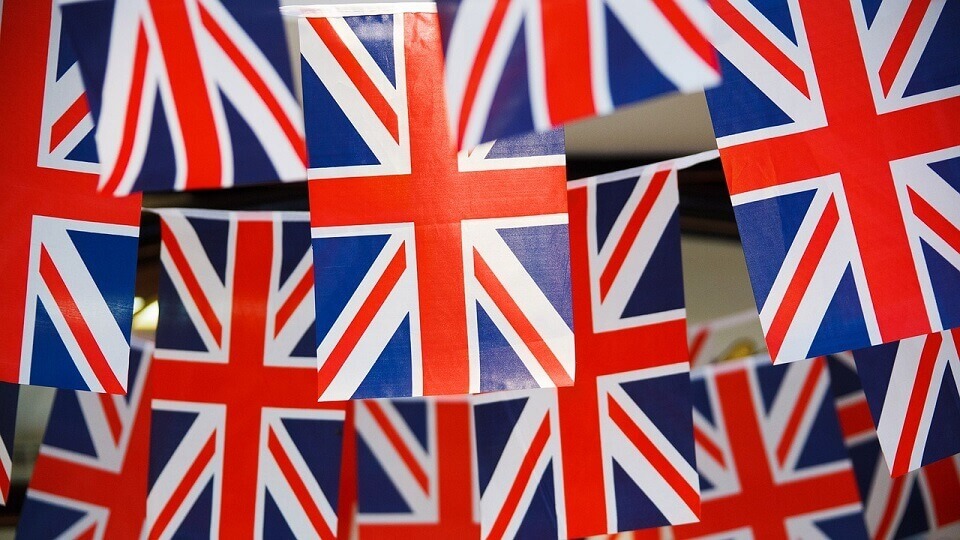
In written articles the writer often uses England or Britain (and even the United Kingdom) as if they are all the same place and interchangeable but this is far from being the case. From looking at a map or atlas England is easy to find while the names Great Britain or United Kingdom will not usually appear. This is because England is a country while the other two are political groupings of several different countries. But what is the distinction between England, Britain and the United Kingdom?
England
The name England derives from “Land of the Angles”, a reference to the Angles, a Germanic tribe who inhabited present-day England back in the fifth century. It is a sovereign state ruled my a monarchy although the Royal Family are now largely merely symbolic and wield no real power in national affairs. England is just one part of a larger landmass which also includes Scotland and Wales.
England shares borders with Scotland in the north and Wales to the west but these are separate countries from England although the three combined form Britain, or Great Britain which is the same thing. The largest of the three countries in Britain, England covers more than half the total land mass and also includes more than a hundred islands including the Isle of Wight and the isles of Scilly.
Britain
Britain, also called Great Britain, is a large island to the northwest of mainland Europe and is a collective name for the countries of Scotland, Wales and England. Once connected to Europe by the Doggerland land bridge, the island separated from the continent approximately 9,000 years ago.
The earliest recorded name for what is Britain today was “Albion”, meaning “white” in Latin, which historians believe was a reference to the white cliffs of Dover which are visible from the French coast. Similarly, the name “Britain” also has a Latin derivation as it was known as “Britannia” (the country of the Britons) in ancient Roman times.
Putting the Great into Britain
The ancient Greeks and Romans were aware of the fact that a large island existed northwest of Europe which had not, as yet, been explored. The Brittany region In the northern part of France was as far as the Roman armies had travelled up to this point but the large island across the channel was clearly visible and considered a part of the Brittany area. The Romans referred to the two areas as “Britannia major” (Greater Britain) and “Britannia minor” (Lesser Britain) because of their relative sizes.
During the six centuries of the Anglo-Saxon period (also called the Dark Ages), from 410 to 1066, the names were roughly translated into English with “Britannia major” becoming Great Britain while “Britannia minor” dropped entirely out of use.
The United Kingdom
To confuse matters further, England is sometimes (erroneously) called the U.K. or United Kingdom. No such place exists as this is a political title given to the four countries that are subject to British laws and government. The United Kingdom is a political, not a geographical, term for four different countries, namely:
- England
- Scotland
- Wales
- Northern Ireland
While the first three are neighbours occupying the same land mass that constitutes Britain, Northern Ireland is located on the island of Ireland which it shares with the Republic of Ireland. The four countries of the United Kingdom are subject to the laws and rules of the British government and the Parliament of the United Kingdom although some measure of independence has been established in Scotland, Wales and Northern Ireland due to a process of devolution (the granting of self government) in the past few decades.
Although Wales, Scotland and Northern Ireland are countries within their own right, Wales and Scotland are sometimes referred to as “regions” while Northern Ireland is often called a “province” of the United Kingdom. These terms, although commonplace, are somewhat controversial and often deemed as offensive by residents of the three countries being referred to.
Northern Ireland, Scotland and Wales (although British) have their own national teams in football, rugby and many other sports and sporting fixtures with England are often dubbed as games against “the old enemy” as the three countries have been occupied by English forces at some point in history.
From 1801 until independence in 1922, Ireland was also a member of the United Kingdom but, following a revolution, the island was divided in two parts: Northern Ireland which England retained control over and the Irish Free State which was self-governed and subsequently became the Republic of Ireland.
The largest islands off the coast of England, the Isle of Man and the Channel Islands, which might reasonably be expected to come under the United Kingdom umbrella, are what is known as British Overseas Territories and are not a part of the United Kingdom.
What about the British Isles?
There is one other descriptor that is also sometimes mistakenly used to refer to England and that is the British Isles. This is not a country or group of countries but simply a geographical term encompassing most of the islands around Great Britain.
The British Isles consists of the islands of Britain, Ireland, Isle of Man, the Hebrides, the Orkneys, Shetland Islands, Northern Isles, Isle of Wight, Jersey, Guernsey and more than 6,000 other small islands.
Summation
To avoid any confusion between Britain, England and the United Kingdom here is a summary:
Britain – Or Great Britain, is a large island to the northwest of Europe that contains three countries: England, Scotland and Wales.
England – A single country covering over half the land mass of the island of Great Britain.
United Kingdom (U.K.) – A group of four countries, spread over the islands of Britain and Ireland, which are subject to British rule. The four countries are England, Scotland, Wales (on the British mainland) and Northern Ireland (on the neighbouring island of Ireland).

